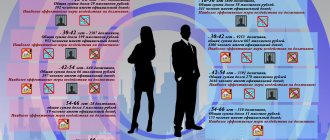Commentary on Article 80 of the RF IC
1. In family law, alimony (from the Latin alimentum - food) refers to funds for the maintenance of other persons. The very concept of alimony has been known since the times of Ancient Rome, but at that time the obligation to pay it was exclusively moral in nature.
The alimony obligation is understood as a legal relationship arising from an agreement of the parties or a court decision, by virtue of which some family members are obliged to provide maintenance to other members, and the latter have the right to demand it.
Alimony obligations are obligations of a special kind; they arise on the basis of imperative norms of family law and are characterized by a complex subject composition and an element of publicity. The legislation provides for two methods of collecting alimony: voluntary (by agreement of the parties) and forced (by a court decision or court order).
Thus, the basis for the emergence of alimony obligations are: the presence of a family or other family connection (marriage, adoption), circumstances provided for by law or agreement of the parties (need, disability of the recipient of alimony, availability of the payer the necessary funds to pay alimony, a court decision to collect alimony or an agreement parties about their payment). Almost all alimony legal relations are generated by complex factual structures. The only exception is the obligations of parents to support minor children: they arise from one legal fact - the origin of the child, duly certified. However, even in this case, when refusing to voluntarily pay alimony, a legal fact such as a court decision that has entered into legal force is necessary.
On the procedure for considering cases of collection of alimony, see Resolution of the Plenum of the Supreme Court of the Russian Federation of October 25, 1996 No. 9. In paragraph 1 of the said Resolution o.
The commented article talks about the obligation of parents to support their minor children. The law does not provide for any special conditions for the emergence of parents’ obligation to support their minor children (for example, the availability of parents with the necessary funds to pay alimony, the age of majority, legal capacity and ability to work of parents, the need of children to receive alimony). Parents' alimony obligation in relation to minor children arises regardless of whether the parents are capable or incapacitated, able-bodied or incapacitated, adults or minors, and also regardless of whether the children need to receive alimony or not. The basis for the alimony obligation of parents in relation to their minor children is the very fact of the birth of the child.
In accordance with Art. 60 of the IC of Russia (see commentary to it), alimony is paid to the child, but goes to the disposal of the parent in whose care he is, and must be spent on his maintenance, upbringing and education. The legislator in paragraph 2 of Art. 104 of the RF IC (see commentary to it) established the following methods of paying alimony: shared (as a percentage of the payer’s earnings and (or) income); in a fixed amount payable periodically; in a fixed amount, paid in one lump sum; by providing property (this may be a lump sum or periodically at agreed periods); mixed options.
The procedure for paying alimony may include direct delivery of money to the recipient, payment of alimony through third parties, transfer of money to the address indicated by the recipient by post or telegraph, transfer of money to an account specified by the recipient in a bank or other credit institution, provision of a savings certificate or plastic card .
Paragraph 1 of the commented Article 80 of the Family Code talks about the possibility of concluding an agreement between parents (see commentary to Chapter 16).
2. In the absence of voluntary payments, alimony may be collected in court by filing an appropriate claim. The defendant in such a claim will be the parents (one of them) who do not provide maintenance to their minor children.
3. A claim for the collection of alimony may be brought by the guardianship and trusteeship authority in the absence of an agreement between the parents on the payment of alimony, in the absence of provision of maintenance to minor children, and in the absence of one of the parents filing a claim in court. Alimony can be collected by the court at the request of one of the parents both during the marriage and after its dissolution.
In the absence of an agreement on the payment of alimony, persons to whom such a right is granted by the current family legislation (i.e., persons who have the right to receive alimony, or their legal representatives) may apply to the court for their payment. They have the right to apply to the court for the recovery of alimony, regardless of the period that has expired from the moment the right to alimony arose, if alimony was not previously paid under an agreement on the payment of alimony.
2.1. Responsibilities of parents for the maintenance of minor childrenThe Insurance Code (Clause 1, Article 80) imposes on parents the obligation to support their minor children, i.e. children under eighteen years of age. This duty means that parents must provide for the child’s needs for food, clothing, leisure items, rest, treatment, etc., and it is usually performed by parents voluntarily, without coercion. The procedure and form for providing maintenance to minor children are determined by the parents independently. Thus, parents have the right to enter into an agreement on the maintenance of their minor children (agreement on the payment of alimony). The need to conclude such an agreement may be caused by various circumstances: divorce of parents; children living with one of the parents; voluntary recognition of paternity with a simultaneous resolution of the issue of child support by the father; permanent residence of the child with relatives (grandfathers, grandmothers), etc. An agreement on the payment of child support must be concluded in writing and notarized, otherwise it will be invalid (Article 100 of the Family Code). The law does not provide any special conditions for the emergence of parental obligations to support minor children, while in other cases it is required that persons obligated to pay maintenance (alimony) for other family members (spouses, brothers, sisters, grandchildren and others) have the necessary funds persons). The obligation of parents to provide maintenance to minor children arises regardless of whether the parents are capable or incompetent, able to work or disabled, adults or minors, and also regardless of whether the children need to receive alimony or not. The grounds for the alimony obligation of parents in relation to minor children are the following circumstances (legal facts): a) the presence of a family relationship between parents and children (the origin of the children), certified in the prescribed manner (Article 47 of the Family Code); b) the minority of children. Children before reaching the age of majority are recognized as incapable of work, and it does not matter whether they work or not. However, the alimony obligation of parents in relation to minor children terminates if the minor children acquire full civil capacity before reaching the age of majority (emancipation of a minor or marriage (clause 2 of Article 120 of the Family Code); c) an agreement of the parties on the payment of alimony or a court decision on the payment of alimony . The subjects of the alimony obligation are: a minor child (authorized person) who, by virtue of Art. 60 SK the right to receive maintenance from their parents, and the parents or one of them (obligated persons). If the child has not reached the age of fourteen years, then according to Art. 99 of the Family Code, a child support agreement is concluded on his behalf by his legal representative (one of the parents or a guardian). A child aged from fourteen to eighteen years, as not fully capable, enters into an agreement on the payment of alimony with the consent of his legal representative (one of the parents or a guardian). It should be noted that enshrined in paragraph 1 of Art. 80 of the SK, the provision on the right of parents to enter into a written agreement on the maintenance of their minor children was originally introduced into the Code of Laws of Ukraine (Article 67) by Federal Law of December 22, 1994 No. 73-FZ. The legislation in force before this made it possible to only partially take into account the will of persons wishing to voluntarily fulfill alimony obligations by providing them with the opportunity to personally pay alimony through the administration of the organization at the place of work, study or receiving a pension, by submitting a corresponding application to the accounting department without any legal registration. However, the voluntary procedure for paying alimony did not deprive the alimony claimant of the right to apply to the court at any time to collect alimony. And the alimony payer himself, who voluntarily fulfilled his obligation, for one reason or another could at any time refuse further payments or reduce their size. The lack of proper legal registration of voluntary payment of alimony led to a violation of the interests of both the authorized person (child) and the obligated person (the alimony payer). The Insurance Code provides an opportunity to avoid such a situation by concluding an agreement in the proper form on the maintenance of minor children between parents or between parents and recipients of alimony (Article 99 of the Insurance Code). This agreement is given the force of a writ of execution (Article 100 of the Criminal Code). An agreement on the payment of alimony may determine the method and procedure for paying alimony for minor children (for example, periodically in a fixed sum of money, in a lump sum in a fixed sum of money, in shares of the payer’s earnings (income), by providing property or other means). The solution to this issue depends on the agreement of the parties (Article 104 of the Criminal Code). Moreover, the Insurance Code contains a fundamentally new provision on the possibility of one-time fulfillment of the alimony obligation, which was not previously allowed. However, in practice, in most cases, alimony obligations are of a continuing nature, which corresponds to their nature, and exist, as a rule, for a certain period of time established by law (until the children reach the age of majority or the children acquire full legal capacity before reaching the age of majority). Concluding an agreement on the payment of child support for minor children is a right, not an obligation, of parents. Therefore, the obligated person has the right, in agreement with the alimony collector (one of the parents, guardian or custodian of the child), to pay him child support and, in the absence of a written agreement, or transfer it to the collector’s bank account, send it by postal order, provide a plastic bank card, savings (deposit) ) bearer certificate, etc. If the parent (parents) does not provide maintenance to their minor children and there is no agreement on the payment of alimony, then in accordance with paragraph 2 of Art. 80 of the Family Code, funds for the maintenance of minor children (alimony) are collected from parents in court at the request of authorized persons: one of the parents; guardian (trustee) of the child; foster parents; the adoptive parent, if the adoption was carried out by one person while maintaining the personal and property rights and obligations of the child with the other parent (clause 3 of Article 137 of the Family Code); administration of the educational institution at the location of the child, performing the duties of a guardian or trustee (Clause 1 of Article 147 of the Family Code). When collecting alimony, these persons act on behalf of the child as his legal representatives and exercise the child’s subjective right to receive maintenance from his parents. The refusal of a parent or persons in loco parentis to receive alimony for minor children is not permitted by law. A situation is possible when the parents (one of them) do not provide maintenance to the child and there is no agreement between the parents on the payment of alimony. Moreover, in this case, interested parties do not make a demand for recovery in court. Then, in order to ensure the maintenance of minor children, the guardianship and trusteeship authority has the right to file a lawsuit against their parents (one of them) for the collection of alimony (clause 3 of Article 80 of the Family Code). A claim to the court for the collection of alimony can be made by authorized persons at any time before the child reaches the age of majority or before he acquires full legal capacity (Clause 1 of Article 107 of the Family Code). Cases regarding the collection of alimony for minor children are one of the most common categories of civil cases arising from family legal relations. The procedure for paying and collecting alimony for minor children based on a court decision is regulated by Chapter. 17 SK. Children left without parental care due to deprivation of parental rights or restrictions on parental rights, recognition by the court as incompetent, etc. (Article 121 of the Family Code), are subject to the general procedure for collecting alimony, including determining the amount of alimony (Clause 1, Art. 84 SK). This means that the fact that children are under guardianship (trusteeship), in a foster family or in an educational institution (another similar institution) does not relieve their parents from the obligation to pay alimony. Accordingly, alimony for children left without parental care is paid by their parents to the guardian (trustee) of the children, their adoptive parents, or transferred to educational institutions. Child support collected from parents for children left without parental care and in educational institutions, in order to ensure the legal rights and interests of children, is credited to the accounts of these institutions, where they are accounted for separately (personally) for each child, i.e. individual accounts for each child will not open. At the same time, educational institutions are given the right to place the received amounts of alimony in banks under a bank deposit agreement, using 50% of the income from the circulation of these amounts for the maintenance of all children without exception in these institutions, and not just for the child for whom alimony (clause 2 of article 84 of the UK). Taking into account the instability of the modern banking system, it seems appropriate to normatively determine the mechanism for carrying out such financial transactions by educational institutions and establish guarantees for the preservation of received amounts of alimony, including the determination of the circle of authorized banks in each of the constituent entities of the Russian Federation (in addition to the methods of provision specified in Article 840 of the Civil Code return of citizens' deposits in banks). When a child leaves an educational institution, the amount of alimony received for him and the remaining 50% of the income from their treatment are credited to an account opened in the child’s name at a branch of the Savings Bank of the Russian Federation. Parents may be exempt from paying child support for children in educational institutions by a court decision made in accordance with those provided for in Art. 119 SK grounds. The amount of alimony for minor children collected in court is determined by Art. 81 SK. Alimony for minor children is collected by the court from their parents on a monthly basis in proportion to the payer’s earnings (income) in the following amounts: for one child - 1/4, for two children - 1/3, for three or more children - half of the earnings and (or ) other income of parents. It should be noted that the indicated amounts of shares for calculating child support have existed for more than 60 years2. Their use has been recognized as appropriate by the Investigative Committee, since the norm on the amount of alimony for minor children has been time-tested and allows the courts to decide the amount of alimony for minor children to be withheld from parents on a unified basis (unless, of course, there are circumstances worthy of attention that would allow increasing or decreasing the size of the indicated shares). In paragraph 2 of Art. 81 IC preserves the rule previously established by Federal Law No. 73-FZ of December 22, 1994, according to which the size of these shares can be either reduced or increased by the court, taking into account the financial or family status of the parties and other noteworthy circumstances (the child works or is engaged in entrepreneurial activity; the defendant’s lack of income and impossibility of employment; the defendant is disabled due to age or health status; the defendant’s earnings are very high or, conversely, very low, etc.). When determining the financial situation of the parties, the court must take into account all the sources that form their income, as well as the value of the property belonging to them (by the parties we mean the respondent parent and the child). The marital status of the respondent parent is determined by the presence in his family of persons whom he is obliged by law to support (other minor children, disabled parents, minor brothers and sisters in need of help, etc.). The marital status of a child should be understood as the presence or absence of a second parent. Noteworthy circumstances are any circumstances relating to the parties that the court has the right to take into account when determining the amount of alimony shares (the respondent parent is unemployed, or disabled, or an old-age pensioner; the child works and has a regular income; the child is seriously ill and needs treatment and ongoing care, etc.). Resolving the issue of increasing or decreasing those specified in paragraph 1 of Art. 81 SK shares are within the competence of the court and are not mandatory, but only possible. The issue of the amount of alimony collected for minor children, in shares of the earnings (income) of the parent (parents), is decided by the court in each specific case, taking into account all the circumstances of the case. There are cases in life when the defendant already pays alimony for other children or payments are made to them under other executive documents. In practice, there is a principle according to which all minor children (including those born in different marriages) for whom alimony is paid must be equally financially secure. In such cases, the court, as a rule, involves interested parties to participate in the consideration of the case on the collection of child support as third parties on the side of the defendant (clause 4, part 1, article 150 of the Code of Civil Procedure). Therefore, if during the preparation of a case on the collection of alimony for trial or already during the consideration of the case, it is established that the defendant pays alimony by court decision or makes payments under other executive documents, interested parties are notified of the time and place of the hearing of the case1. Failure to comply with this requirement under certain circumstances may result in the subsequent reversal of the court decision. Types of earnings and (or) other income that parents receive and from which alimony is withheld, collected from minor children on a shared basis, in accordance with Art. 82 IC are determined by the Government of the Russian Federation. Accordingly, by Decree of the Government of the Russian Federation of July 18, 1996 No. 841 (as amended and supplemented by Decree of the Government of the Russian Federation of May 20, 1998 No. 465)2 the List of types of wages and other income from which alimony is withheld is made minor children (hereinafter referred to as the List). The list (clause 1) stipulates that the withholding of alimony for the maintenance of minor children is made from all types of wages (monetary remuneration, maintenance) and additional remuneration both at the main place of work and for part-time work, which parents receive in monetary (national) or foreign currency) and in kind, including: a) from the amount accrued at tariff rates, official salaries, piece rates, or as a percentage of revenue from sales of products (performance of work and provision of services), etc.; b) from all types of additional payments and allowances to tariff rates and official salaries (for work in hazardous working conditions, at night; for those employed in underground work, for qualifications, combining professions and positions, temporary substitution, access to state secrets, academic degrees and academic title, length of service, work experience, etc.); c) from bonuses (remunerations) of a regular or periodic nature, as well as based on the results of work for the year; d) payment for overtime work, work on weekends and holidays; e) from wages saved during the vacation, as well as from monetary compensation for unused vacation, in the case of combining vacations for several years; f) from the amounts of regional coefficients and wage supplements; g) from the amount of average earnings maintained during the performance of state and public duties, and in other cases provided for by labor legislation; h) from additional payments established by the employer in excess of the amounts accrued when granting annual leave in accordance with the legislation of the Russian Federation and the legislation of the constituent entities of the Russian Federation; i) from an amount equal to the cost of the food provided (paid for); j) from an amount equal to the cost of paid travel by public transport to the place of work and back; k) from commission (to full-time insurance agents, full-time brokers, etc.); l) from payment for the performance of work under contracts concluded in accordance with civil law; m) from the amount of royalties, including those paid to full-time employees of editorial offices of newspapers, magazines and other media; o) from the amounts of executive remuneration; o) from income received from election commissions by members of election commissions who carry out their activities in these commissions not on a permanent basis; p) from income received by individuals from election commissions, as well as from the election funds of candidates for deputies and election funds of electoral associations for the performance by these persons of work directly related to the conduct of election campaigns. In addition, according to paragraph 2 of the List, deduction of alimony is also made: a) from all types of pensions and compensation payments to them, from monthly surcharges to pensions; b) from scholarships paid by students in educational institutions of primary, secondary and higher vocational education, graduate students and doctoral students studying with a margin from production in graduate school and doctoral studies in educational institutions of higher professional education and research institutions, listeners of spiritual educational institutions; c) with temporary disability benefits, pregnancy and childbirth, unemployment only by court decision and a court order to recover alimony or notarized agreement on the payment of alimony; d) from the amounts paid for the period of employment dismissed in connection with the liquidation of the organization, the implementation of measures to reduce the number or state; e) from the income of individuals engaged in driving activities; f) with income from entrepreneurial activities without forming a legal entity; g) from income from transferring property; h) with income on shares and other income from participation in the property management of the organization (dividends, payments by shared fall, etc.); i) with the amounts of financial assistance. From military personnel, employees of the internal affairs bodies and other categories of persons, the retention of alimony is carried out from their monetary allowance (maintenance), including: a) from military personnel - from a salary in military position, a military rank, monthly and other allowances ( surcharges) and other additional payments of monetary allowance, which are permanent (including monetary compensation issued in return for food ration); b) with employees of the internal affairs bodies, the tax police, as well as employees of the customs system - from the salary in a regular position, salary in a special rank, interest allowances (additional payments) for seniority, scientific degree and academic rank and other cash payments that have a constant nature . Alimony is paid by military personnel and employees of the internal affairs bodies also from one -time and monthly benefits and other payments upon dismissal from military service or from service in the internal affairs bodies (paragraph 3 of the List). Types of remuneration, bonuses and other payments received by parents and not subject to accounting upon maintaining alimony, follow from the content of the list. These mainly include bonuses that are a one -time (irregular and non -periodic) nature, regardless of the source of payment, as well as other payments provided for by law that are not constant, including: a) the output benefit paid upon dismissal; b) the amount of the cost of medical and preventive nutrition issued in accordance with the labor legislation; c) the allowances set for pensions for the care of the pensioner, as well as the compensatory payment of the inaccessible able -bodied person for the period of caring for the pensioner; d) the amounts paid in the compensation of additional expenses caused by damage to health related to the performance of labor duties (treatment for treatment, additional nutrition, the acquisition of drugs, prosthetics, extraneous care, sanatorium-resort treatment, acquisition of special vehicles, preparation for another profession ); e) the amount of material assistance provided to citizens in connection with a natural disaster, with fire, property of property, injury, as well as with the birth of a child, with a marriage registration, with the death of close relatives of a person obligated to pay child support. The recovery of alimony with the amounts of wages and other income due to the person paying alimony is made after withholding (payment) from this wage and other income of taxes in accordance with the tax legislation of the Russian Federation, i.e., income tax from individuals, deductions to pension Fund (Article 65 of the Law on Enforcement Proceedings, paragraph 4 of the List). For persons serving sentences in correctional colonies, colonies-settlements, prisons, educational colonies, as well as in the narcological departments of psychiatric dispensaries and stationary medical institutions, alimony is calculated from the entire amount of earnings without taking into account deductions for compensation for their maintenance in these institutions. From citizens convicted of labor work, alimony should be collected from all earnings without taking into account deductions made by the court verdict or decision (Article 67 of the Law on Enforcement Proceedings; paragraph 4 of the List). The recovery of alimony for minor children in a solid amount of money. The recovery of alimony for minor children in a judicial proceeding can be carried out not only in shares to the earnings of parents, but also in a solid amount of money. The penalty of alimony for minor children in a solid amount of money in accordance with paragraph 1 of Art. 83 SK is allowed in the presence of certain circumstances (grounds), namely: a) if the parent obliged to pay alimony has irregular, changing earnings and (or) other income. In modern economic conditions, the number of citizens engaged in entrepreneurial activity and having unstable income has increased significantly, while earlier this mainly concerned seasonal workers (employees of geological and other search parties, harvesters, etc.) and creative workers (artists , musicians, writers, etc.). In this regard, it seems that the founding under consideration will be widely applied in practice; b) if the parent obliged to pay alimony receives earnings and (or) other income in full or partly in kind (i.e., for example, products that the enterprise produces where the alimony payer works); c) if the parent obliged to pay alimony receives earnings and (or) other income in full or partly in foreign currency (since changing the exchange rate of foreign currency both towards the increase and in the direction of decrease in relation to the national currency of the Russian Federation when calculating alimony in shares to earnings (income) can significantly affect the amount of alimony); d) if the parent who is obliged to pay alimony does not have earnings and (or) other income. In this case, the collection of alimony is carried out by applying to the property of a parent obliged to pay child support. And in order to make such a penalty, it is necessary to establish the amount of alimony, which in this case can only be determined in a solid amount of money; e) in other cases when the recovery of alimony in shared attitude to earnings and (or) other income of the parent is impossible, difficult or significantly violates the interests of one of the parties (for example, the parent parent hides his real income or it is impossible to establish all the sources of his income or income The defendant is insignificant, but he has expensive property, etc.). To recover alimony in a solid amount of money, one of the above -mentioned grounds is enough. Moreover, the court has the right to determine the amount of alimony in a fixed amount of money both on its own initiative and at the request of any of the parties. In addition, the court has the right to take into account the specific circumstances of the case under the same grounds to recover alimony for minor children at the same time in the shares of the defendant’s earnings and in a solid amount of money. The specific amount of the solid amount of alimony payable monthly is determined by the court based on the maximum possible preservation of the child of the previous level of its provision (paragraph 2 of article 83 of the UK). At the same time, the court also takes into account the material and marital status of the parties and other circumstances that deserve attention (the number of family members of the recipient of alimony and the payer; the disability of the payer of alimony; the availability of property for which alimony payments can be levied; the child has independent earnings and has an independent earnings and etc.). The financial situation of the parties is determined by the court, taking into account all the sources that form their income. The amount of alimony in a firm amount established by the court, firstly, should be sufficient to satisfy the usual, and not just limited necessary (“minimum consumer basket”) needs of the child, and secondly, should be determined based on the real material capabilities of the parent-payer Given the need to ensure his own existence and members of his family for the remaining alimony of the funds. A retreat from the alimony of alimony for minor children in a fixed amount of money provided for by the Law may lead to the abolition of a court decision contrary to the requirements of Art. 83 SK, as evidenced by the following ruling of the judicial board for civil cases of the Supreme Court of the Russian Federation. By a court decision, a lawsuit was satisfied with the recovery of alimony from K. for a child in a solid amount of money (379,500 rubles). The Presidium of the Regional Court left the court decision unchanged. The Judicial Collegium for Civil Cases-Vergovy Court of the Russian Federation satisfied the protest, which was made in the manner of supervision, canceled the court decisions and sent the case to the court of first instance on the following grounds. The recovery of alimony for minor children in a solid amount of money is possible only in the presence of circumstances provided for in paragraph 1 of Art. 83 SK. At the same time, according to paragraph 2 of Art. 83 SK the amount of a solid amount of money is determined by the court based on the maximum possible preservation of the child of the previous level of its security, taking into account the material and family position of the parties and other circumstances that deserve attention. When preparing the case for trial, a judge in violation of the requirements of Art. 141, 142 of the Code of Civil Procedure of the RSFSR did not determine the evidence that each party must submit to the support of its statements. As a result, the court proceeded to consider the case in the absence of any evidence confirming the assertion of the plaintiff about the availability of additional income, as well as their amount, except for earnings. In addition, there are no documents on the material situation of G. regarding the material situation of the defendant in the case in the case there is only a certificate from the place of his work, according to which the monthly earnings of K. are 200,000 rubles. Nevertheless, the court collected alimony from it in the amount of 379,500 rubles. monthly. Satisfying the requirements of G., the court referred to the decision to recognize the defendant the claim and the adoption of him by the court, and therefore, according to Part 4 of Art. 197 Code of Civil Procedure of the RSFSR, did not bring other motives for the decision. Meanwhile, as can be seen from the complaint of K., he was asked the question whether he agreed with a lawsuit, and he realized that it was only about his consent to pay child support, but did not even allow thoughts about the possibility of recovery of alimony in an amount significantly exceeding its average monthly earnings, which led him to an extremely difficult position due to the lack of additional income. In this regard, these court decisions on the claim for the recovery of alimony in a fixed amount of money were canceled as the requirements of substantive and procedural law. In accordance with Art. 117 SK the amount of alimony collected by the court is set in a solid amount of money corresponding to a certain number of minimum wages, and is subject to indexation in proportion to an increase in the minimum wage established by law, as indicated in the resolving part of the decision. If children remain with each of the parents (which is most often associated with the divorce of the parents), then in order to create equal material conditions for their education, alimony is recovered by the court from only one of the parents more secured, in favor of another, less secured (paragraph 3 Art. 83 SK). At the same time, the amount of alimony is determined by the court in a firm amount of money collected monthly in order to preserve the child as if possible the former standard of living, which he had before the collapse of the family. It should be borne in mind that alimony for minor children in a fixed amount of money cannot be recovered on the basis of a court order, since the decision of this issue is associated with the need to verify the presence or absence of circumstances (grounds) with which the law connects the possibility of such a penalty. The judge refuses to issue a court order to recover alimony in a firm amount of money in connection with the need for a trial and explains the applicant his right to file a claim at the same request.
Another comment on Art. 80 of the Family Code of the Russian Federation
1. Maintenance of minor children is the main property responsibility of parents in relation to such children. This obligation arises from the moment the child is born and terminates, according to Article 120 of the RF IC, when the child reaches the age of majority or acquires full legal capacity in connection with marriage (clause 2 of Article 21 of the Civil Code of the Russian Federation) or in the manner of emancipation (Article 27 Civil Code of the Russian Federation).
2. On the obligations of parents to support disabled adult children, see Article 85 of the RF IC and the commentary thereto. On the agreement on the payment of alimony, see Articles 99-105 of the RF IC and the commentary thereto.
3. Alimony refers to funds collected from parents or voluntarily provided by them for the maintenance of children in the event of failure to provide maintenance to children directly in the process of living together with the child in the family.
4. The RF IC, unlike the CoBS, does not provide for alimony obligations of actual educators in the event of refusal to further educate and support their pupils, as well as the obligations of stepfathers and stepmothers for the maintenance of minor stepsons and stepdaughters who were in their care or support, does not have parents or cannot receive sufficient support from their parents. However, this circumstance does not entail the termination of the payment of alimony collected under court decisions made in such cases before March 1, 1996, since clause 2 of Article 120 of the RF IC (see commentary to it) does not establish such a basis for the termination of alimony obligations.








